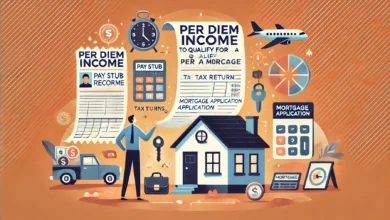Do Bank Employees Get Better Mortgage Rates? Exploring Benefits, Eligibility, and Comparisons

When you think of working at a bank, you might immediately think of steady hours, good benefits, and a stable career path. But did you know that being a bank employee can come with another significant perk—access to potentially better mortgage rates? If you’re in the market for a home loan and work at a bank, you might be eligible for some unique benefits that could save you money over the life of your mortgage. Let’s dive into whether bank employees truly get better mortgage rates and what that means for you.
Benefits of Bank Employee Mortgage Rates
So, what exactly makes these mortgage rates so special? Banks often view their employees as valued clients and, as a result, offer them a variety of perks when it comes to lending. These can include:
- Lower Interest Rates: Bank employees might receive interest rates that are lower than what is available to the general public. Even a slight reduction in the interest rate can lead to significant savings over the life of a mortgage.
- Waived or Reduced Fees: Application fees, processing fees, and even some closing costs might be waived or reduced for bank staff. These savings can be beneficial, especially in the initial stages of home buying.
- Flexible Loan Terms: Employees could benefit from more flexible repayment terms, including longer loan terms or options for refinancing.
By offering these advantages, banks aim to retain their employees’ loyalty and make their workplace benefits more attractive. In other words, the answer to the question, “do bank employees get better mortgage rates” is often a resounding yes—but with some conditions.
Eligibility and Conditions for Special Rates
Not every bank employee will automatically qualify for these favorable mortgage rates. The eligibility can vary based on the bank, your role, and your length of employment. Here’s what to keep in mind:
- Type of Employment Matters: Full-time employees usually have access to the most favorable rates, but part-time or contract workers might not have the same privileges. It’s always best to check with your bank’s HR department for specific details.
- Minimum Employment Duration: Some banks require employees to have worked for a minimum period, such as six months to a year, before they become eligible for special mortgage benefits.
- Position or Branch Affiliation: Specific positions within the bank, like financial advisors or loan officers, might receive even better perks than other employees. This often depends on the bank’s internal policies and how much they value certain roles within their structure.
These conditions ensure that mortgage rate benefits are reserved for employees who have demonstrated a certain level of commitment to the bank.
How Bank Employee Mortgage Rates Compare to Standard Rates
Now, let’s talk numbers. One of the key advantages of bank employee mortgages is the rate comparison. A typical interest rate for the general public might range anywhere from 3.5% to 5% for a 30-year fixed mortgage (depending on market conditions and creditworthiness). However, a bank employee could be offered a rate 0.5% to 1% lower than this average, which might not sound like much but can result in substantial savings over the life of a loan.
For example, on a $300,000 mortgage over 30 years:
- Standard Rate (4%): Total Interest Paid = ~$215,000
- Employee Rate (3.5%): Total Interest Paid = ~$184,000
- Total Savings: ~$31,000
These savings show the tangible benefit of receiving a lower interest rate as a bank employee, not only reducing monthly payments but also the overall amount paid for the house.
Pros and Cons of Bank Employee Mortgage Programs
While the perks sound appealing, it’s important to weigh both the advantages and potential downsides:
Pros:
- Lower interest rates: Reduced rates can save thousands over the loan’s lifespan.
- Waived or reduced fees: Costs like origination fees, processing fees, and other charges might be lower.
- Flexible terms: Some banks might offer more adaptable terms, allowing for quicker payoffs or refinancing.
Cons:
- Limited flexibility if employment changes: If you leave your bank job, the mortgage terms might change, and you could lose those benefits.
- Limited lender options: Bank employees might be expected to use their employer’s mortgage services, which could limit the ability to shop around for the best possible rate.
- Variability between banks: Benefits differ widely between institutions, so not all bank employees will experience the same perks.
Overall, these pros and cons help to provide a well-rounded view of the mortgage benefits available to bank employees and the potential challenges that might come with them.
How to Access Better Mortgage Rates as a Bank Employee
If you’re a bank employee looking to take advantage of these benefits, start by speaking to your HR department or financial benefits advisor within your bank. They can guide you through the mortgage products available to employees, help you understand the eligibility criteria, and walk you through the application process.
Additionally, take the time to negotiate and ask questions about the specific terms of your mortgage. Just because you’re an employee doesn’t mean you can’t shop around or negotiate for even better terms within the bank. Being informed about your options will help you maximize the benefits available to you.
FAQs on Mortgage Benefits for Bank Employees
Q: Do family members of bank employees also get access to better mortgage rates?
A: Some banks extend mortgage benefits to direct family members, like spouses or children. However, this varies widely by bank, so it’s essential to check with your institution.
Q: What happens to the mortgage rate if the employee leaves the bank?
A: In many cases, if you leave the bank, your mortgage rate might adjust to a standard customer rate. It’s crucial to clarify this with your bank before taking the mortgage.
Q: Can bank employees refinance their mortgage at a better rate within the bank?
A: Yes, some banks allow employees to refinance at special rates, especially if interest rates have dropped or if the employee’s financial situation has improved.
Conclusion
To wrap it up, the question “do bank employees get better mortgage rates” is generally answered with a yes, though the extent of the benefits can vary significantly between institutions and employment status. With lower interest rates, reduced fees, and flexible loan terms, being a bank employee can make a significant difference in your mortgage journey. However, it’s vital to be aware of the conditions tied to these benefits and to fully understand how they will affect your long-term financial planning. If you’re a bank employee considering a mortgage, reach out to your bank’s representatives to learn more about the programs available to you.



